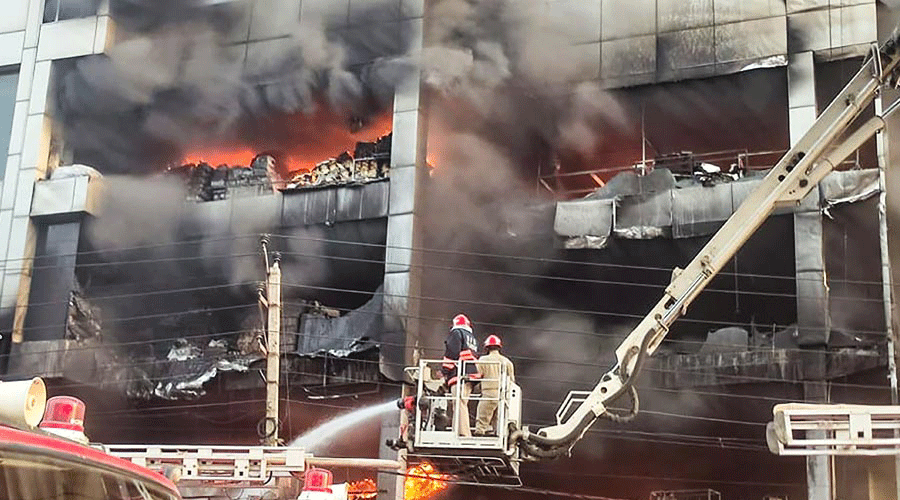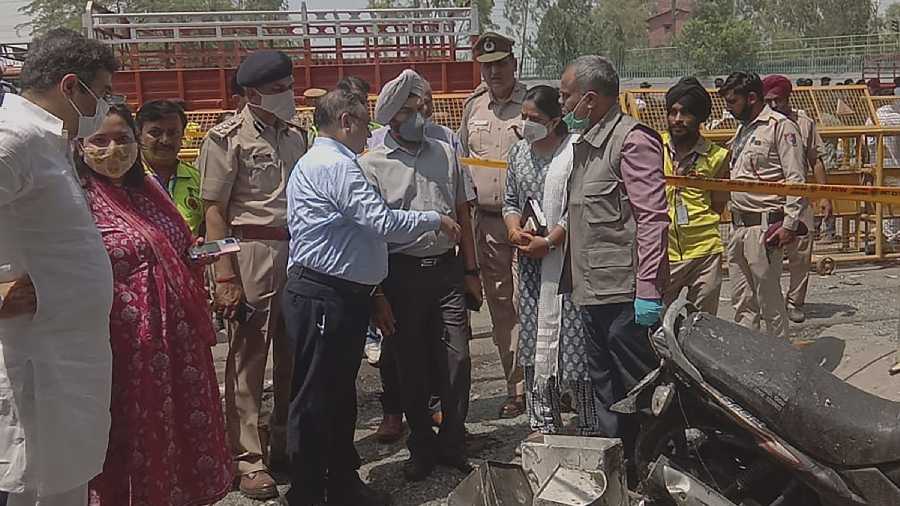A labour rights body has cited Friday’s fire in Delhi that killed 30 workers to express the fear that workplace tragedies will become more frequent after the upcoming implementation of a new labour law that it says will exempt 85 per cent of establishments from following certain occupational safety norms.
“Once the new law comes into force, most small and medium-scale industries will no longer be legally required to follow the occupational safety standards,” said Dharmendra Kumar of the Working People’s Coalition (WPC), a network of over 100 organisations working on labour rights issues.
He was referring to the Occupational Safety, Health and Working Conditions Code, one of four labour laws that Parliament has passed in the past three years. These four will absorb and replace 29 existing labour laws once the government finishes framing the rules for their implementation.
The existing Factories Act stipulates that establishments must follow certain safety norms if their production processes involve the use of power and they have 10 or more employees, or if the processes do not use power and they have 20 or more employees.
However, the Occupational Safety Code increases the threshold to having 20 or more employees if production involves power, and 40 or more employees if it does not.
The code also exempts labour contractors engaging up to 50 workers from its ambit, up from the current threshold of 20. It empowers state governments to exempt new factories from the law’s ambit.
Some of the requirements under the Factories Act are risk-free plants and systems and safe arrangements for the use, handling, storage and transport of articles and substances.
The WPC estimates that 85 per cent of India’s workplaces — especially medium and small enterprises that tend to be more vulnerable to occupational hazards and safety violations — will not be required to follow these safety norms.
“Most establishments are already violating safety norms, but mishaps are underreported,” Kumar said.
The WPC’s statement said the fire-struck building in Mundka on Delhi’s fringes operated without any inspections or scrutiny by authorities.
While it’s the fire safety department that primarily ensures the observance of anti-blaze norms, labour department officials are expected — during their inspections — to ensure fire safety as part of the Factories Act’s requirement of maintaining a safe workplace, a labour economist said.
According to labour rights activists, the Mundka tragedy highlights a general callousness about worker safety in a liberalised labour law regime.
In a reply to Parliament in March 2021, the government had said that at least 6,500 employees had died while on duty at factories, ports, mines and construction sites between 2014 and 2018.
Labour economist K.R. Shyam Sundar, professor of human resource management, XLRI, Xavier School of Management, agreed with the WPC’s assessment and prediction of danger.
“The Occupational Safety Code has failed to cover all kinds of establishments and workers. The mindless liberalisation and dilution of the inspection system makes the job of ensuring safety more problematic,” Sundar said.
He said several states too had, in a bid to increase the “ease of doing business”, liberalised labour laws such as the Factories Act and Contract Labour Act and substantially relaxed the labour inspection system. This had led to the smaller factories and petty contractors disregarding labour welfare and security with impunity.
Parliament has passed three other labour laws — the Wage Code, Industrial Relations Code and the Social Security Code — which too await implementation.
The Wage Code provides what labour activists consider a very low “threshold floor-level wage” and then leaves it to the states to set higher “minimum wages” of their own if they want.
Kumar said the official minimum wage in Delhi was over Rs 600 a day and yet many factories producing garments or electronic items did not pay more than Rs 8,000 a month.
The Industrial Relations Code allows firms engaging up to 300 employees to retrench people without requiring state government approval.











